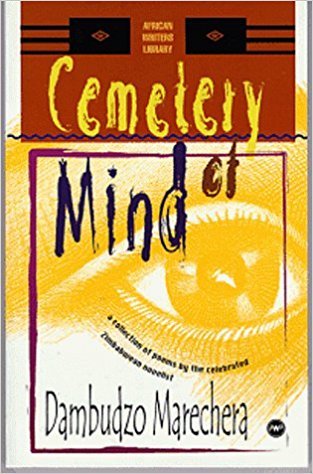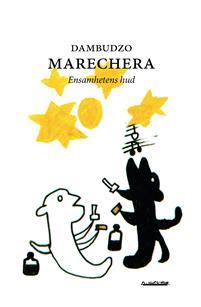
"A black man who has suffered all the stupid brutalities of the white oppression in Rhodesia, his rage explodes, not in political rhetoric, but in a fusion of lyricism, wit, obscenity. Incredible that such a powerful indictment should also be so funny."
Doris Lessing in praise of The House of Hunger
Harare, 1986
At home in Harare, 1986.
© Ernst Schade.
Known as the "enfant terrible of African literature" and "Africa's response to Joyce", Dambudzo Marechera (1952-1987) has been dismissed by some as mad and applauded by others as a genius. More than twenty years after his death, his work continues to inspire academic studies, biographies, films, and plays. Famous for his unconventional life as much as for his work, Marechera has become something of a cult figure in certain circles in Zimbabwe, a country whose political developments have fulfilled his prescient political vision. The annual "The House of Hunger Poetry Slam", which takes place in The Book Café in Harare every June, is a witness to the enormous influence Marechera continues to wield over Zimbabwean writers. Among his many followers and admirers are the Zimbabwean praise poet Albert Nyathi, the South African performance poets Lesego Rampolokeng and Kgafela oa Magogodi, or the Zimbabwean rapper Comrade Fatso.
Marechera belongs to the so-called second generation of Zimbabwean writers who published their major works in the 1960s and 1970s. They constitute a "lost generation" that grew up in a country ruled by a white minority government and shattered by a guerrilla war. As the Zimbabwean liberation war was gaining momentum, writers such as Marechera, Charles Mungoshi and Stanley Nyamfukudza already express disillusionment in its nationalist cause and pessimism about the future. The sense of futility sprang from the ethnic polarization of the liberation struggle as well the violence perpetrated by the guerrillas against civillians. Marechera stands out among the "lost generation" by his experimental, non-realist style, his deconstruction of both 'African' and 'Western' epistemologies as systems of power, his unceasing insistence on the role of the writer as intellectual anarchist, and his attack, even after independence, on the emergent Zimbabwean national identity.
House of Hunger
"I don't hate being black. I'm just tired of saying it's beautiful", Marechera famously wrote, expressing his post-racial vision that made some see him as "the man who betrayed Africa". Born into ghetto poverty in colonial Rhodesia, Marechera was expelled from University of Rhodesia for his political involvement. A brilliant student, he received a scholarship to read English at New College, Oxford, to which he responded with extreme alienation and was to be sent down in his second year for a series of provocations, including threats to burn down New College. He wrote his first novella, The House of Hunger (Heinemann, 1978), while camping in Port Meadow near Oxford. This stream-of-consciousness account of the schizophrenia and brutality of the colonized condition went on to win the prestigious Guardian First Book Award in 1979, with Marechera being immediately recognized as an avant-garde minstrel whose search for new ways to communicate placed him in the tradition of modernists such as Joyce, Beckett and Soyinka. The book was said to set a new path in African writing and Marechera was hailed as a witness and a prophet.
Black Sunlight
Marechera's mistrust of the establishment and high valuation of individual freedom made him resist absorption into London's literary society. Living as a tramp-writer in London's squats and parks, he wrote Black Sunlight (Heinemann, 1980), and Black Insider (published posthumously in 1992), even more experimental works that irreverently parodied African nationalist, Marxist and racial identifications, because he recognized that notions of an essential African identity were being invoked to authorize many totalitarian regimes acros









